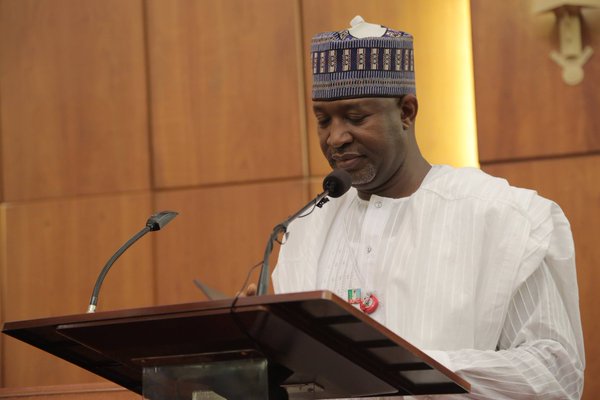The foreign exchange and fuel crises that have plagued the aviation sector seem to have led to a decline in the sector’s contribution to the Gross Domestic Product by 61.47 percent.
The nominal GDP output of the sector crashed from N84.73bn in the first quarter of 2022 to N32.65bn by the second quarter of the year, according to the latest Q2 2022 GDP data from the National Bureau of Statistics.
There have been serious concerns over millions of dollars earned by foreign airlines operating in the country, which they could not repatriate due to foreign scarcity.
There have also been concerns about the rising cost of aviation fuel, which has made the cost of operations high for domestic airline operators.
Domestic and international airlines operating in the country have been raising airfares and reducing flights due to these crises.
The Chairman, United Nigeria Airlines, and spokesperson for Airline Operators of Nigeria, Prof. Obiora Okonkwo, in an exclusive interview with the PUNCH, noted that domestic airlines had been struggling with high operating costs due to the hike in aviation fuel.
He also noted that the lack of adequate forex from the Central Bank of Nigeria had pushed airline operators to get forex from the black market at high costs.
Obiora said, “It is a big problem because 95 percent of the funds we need are sourced from the parallel market, which makes things very expensive. Sometimes, it is not even available.
“This cash, even when you have naira, is not available in US dollars, and then it affects your delivery time, further increasing your aircraft-on-ground period and your operational efficiency. So, it is really a huge issue.”
The Chairman, of Air Peace, Allen Onyema, recently disclosed that over 70 airlines had gone into extinction in Nigeria in the past few years and three others currently in operation might collapse in the coming weeks.
He attributed the incessant collapse of airlines in Nigeria to the excessive charges confronting operators in the sector, among other concerns, adding that the major reason capable of crumbling the operations of airlines currently was the high cost of aviation fuel, popularly called Jet A1.
SEE ALSO: DisCos capacity rises by 19% after privatization
He added, “There are so many issues in the aviation industry. Issues like high taxes are making airlines unprofitable here.
“We pay excessive charges to the Nigerian Airspace Management Agency. Paying navigation charges is absurd for domestic operations. The mortality rate of airlines in Nigeria is alarming. Over 70 airlines have gone into extinction in the last few years.”
The International Air Transport Association, the Switzerland-based global body representing international airlines, had warned Nigeria that more carriers might suspend flights to Nigeria if the government failed to address the repatriation of the $464m trapped in Nigeria.
British Airways stopped travel agents in Nigeria from selling their tickets amid the difficulty of foreign airlines to repatriate over $464m ticket sales proceeds to their respective home countries.
The development came barely a week after Middle East carrier, Emirates Airlines, announced the suspension of flights to Nigeria effective September 1, 2022. The Dubai-based carrier linked the development to the inability to repatriate $85m ticket sales proceeds.
However, the CBN announced on Friday that it had released $265m to airlines operating in the country, to settle outstanding ticket sales to check a brewing crisis in the country’s aviation sector.
A breakdown of the figure indicated that $230m was released as a special foreign exchange intervention while another $35m was released through the Retail SMIS auction.













